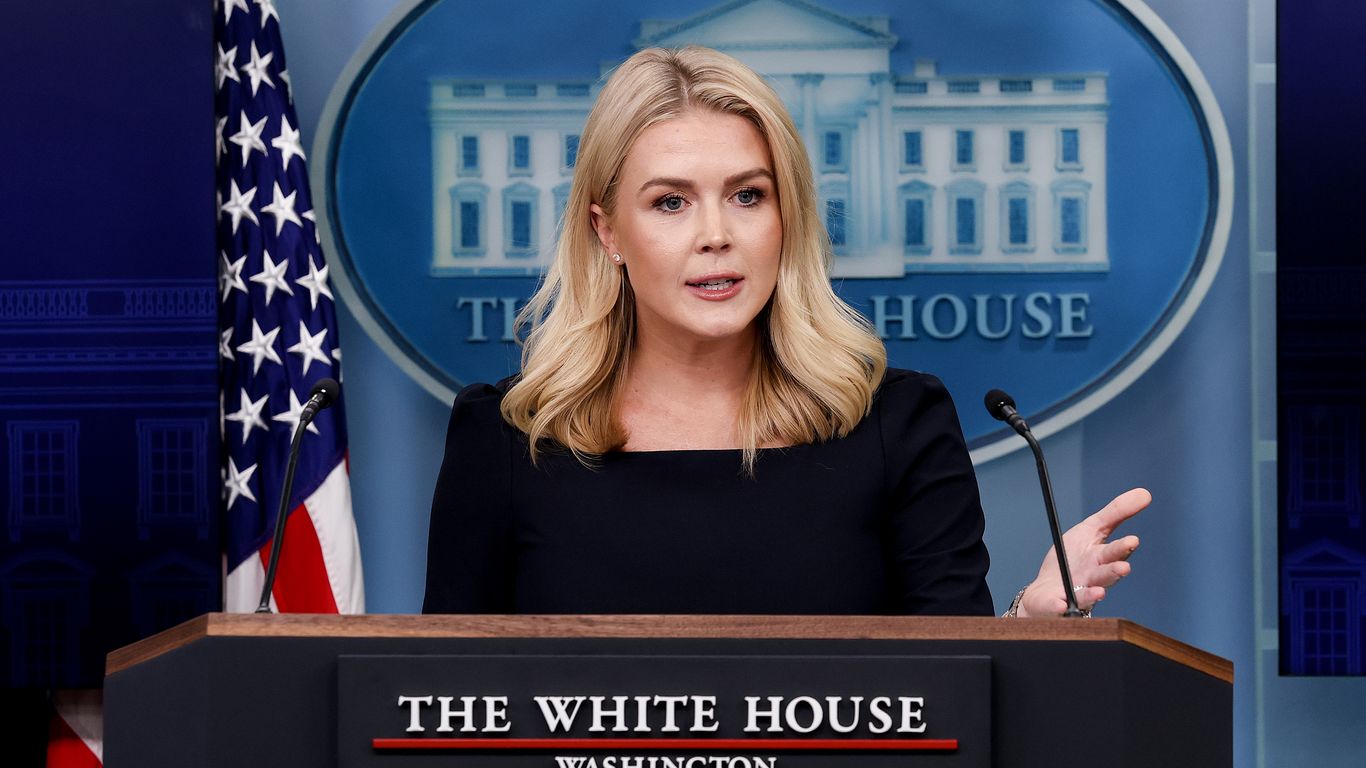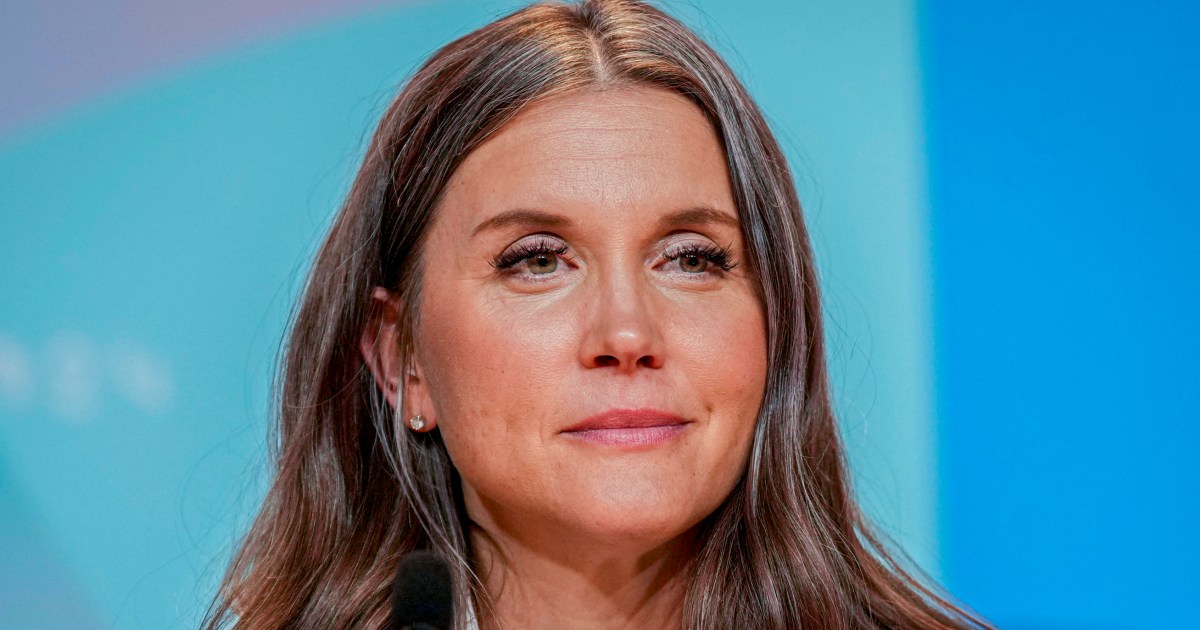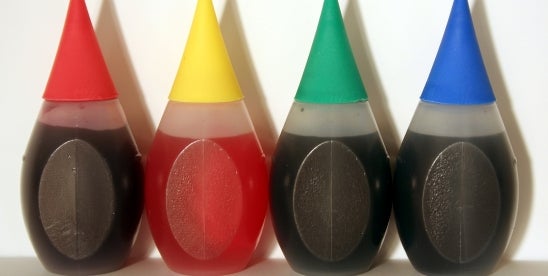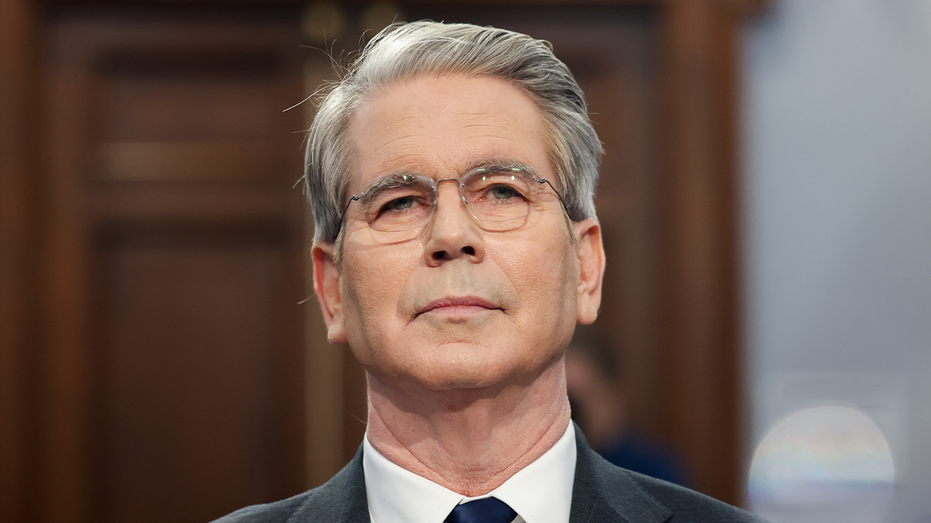The White House is "looking into" the legality of sending U.S. citizens to prisons in El Salvador, Press Secretary Karoline Leavitt said during a briefing Tuesday.
The big picture: President Trump has recently threatened to send Americans to a notorious El Salvador prison where several deported Venezuelans, who are alleged to be members of the MS-13 gang, and one erroneously deported Maryland man are being held. Sending U.S.

prisoners to foreign jails violates the Constitution's Eighth Amendment, which bars "cruel and unusual" punishments, according to criminal justice advocates.What she's saying: Asked by a reporter if the White House believes it has the power to deport American citizens to Central America prisons or if it has to change the law to do so, Leavitt said: "It's another question that the president has raised."She added, "It's a legal question that the president is looking into.
"Trump "would only consider this, if legal, for Americans who are the most violent, egregious, repeat offenders of crime who nobody in this room wants living in their communities," Leavitt said.Asked to explain the legal basis for sending U.S.
citizens to El Salvador prisons, Leavitt said: "We're looking at it."Zoom out: During a Monday meeting at the Oval Office, Trump told Salvadorian President Nayib Bukele that he would need more prisons in El Salvador to house the "criminals" the U.S.
would send. "Homegrown criminals next," Trump told Bukele at the meeting. "I said homegrowns are next, the homegrowns.
You gotta build about five more places."The president also asserted that Attorney General Pam Bondi is "studying" sending U.S.
citizens to foreign prisons. "If we can do that, that's good," Trump said Monday. He later added that he wants to send "violent people.
I'm talking about really bad people. Really bad people. Every bit as bad as the ones coming in.
"Go deeper: Timeline: The case of a Maryland man mistakenly deported to El Salvador.
White House exploring legality of sending U.S. citizens to foreign prisons

The White House is "looking into" the legality of sending U.S. citizens to prisons in El Salvador, Press Secretary Karoline Leavitt said during a briefing Tuesday.The big picture: President Trump has recently threatened to send Americans to a notorious El Salvador prison where several deported Venezuelans, who are alleged to be members of the MS-13 gang, and one erroneously deported Maryland man are being held. Sending U.S. prisoners to foreign jails violates the Constitution's Eighth Amendment, which bars "cruel and unusual" punishments, according to criminal justice advocates.What she's saying: Asked by a reporter if the White House believes it has the power to deport American citizens to Central America prisons or if it has to change the law to do so, Leavitt said: "It's another question that the president has raised."She added, "It's a legal question that the president is looking into."Trump "would only consider this, if legal, for Americans who are the most violent, egregious, repeat offenders of crime who nobody in this room wants living in their communities," Leavitt said.Asked to explain the legal basis for sending U.S. citizens to El Salvador prisons, Leavitt said: "We're looking at it."Zoom out: During a Monday meeting at the Oval Office, Trump told Salvadorian President Nayib Bukele that he would need more prisons in El Salvador to house the "criminals" the U.S. would send. "Homegrown criminals next," Trump told Bukele at the meeting. "I said homegrowns are next, the homegrowns. You gotta build about five more places."The president also asserted that Attorney General Pam Bondi is "studying" sending U.S. citizens to foreign prisons. "If we can do that, that's good," Trump said Monday. He later added that he wants to send "violent people. I'm talking about really bad people. Really bad people. Every bit as bad as the ones coming in."Go deeper: Timeline: The case of a Maryland man mistakenly deported to El Salvador















